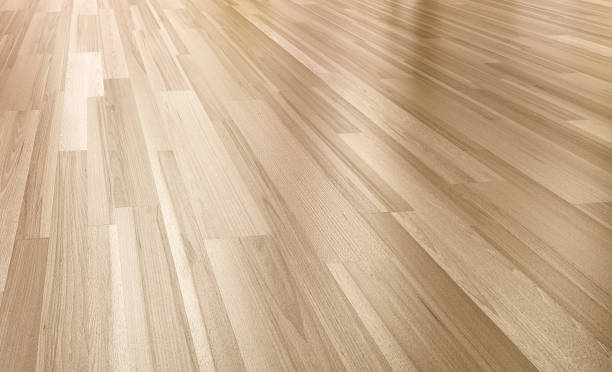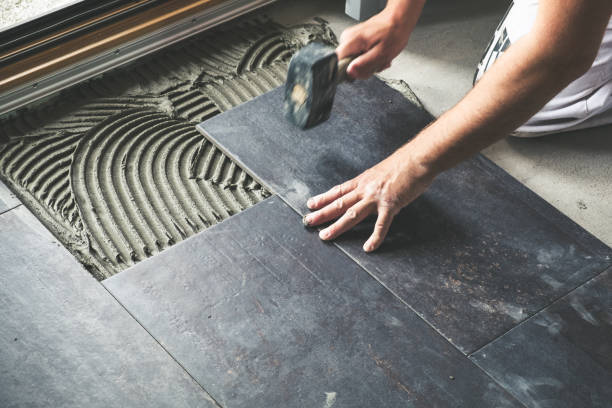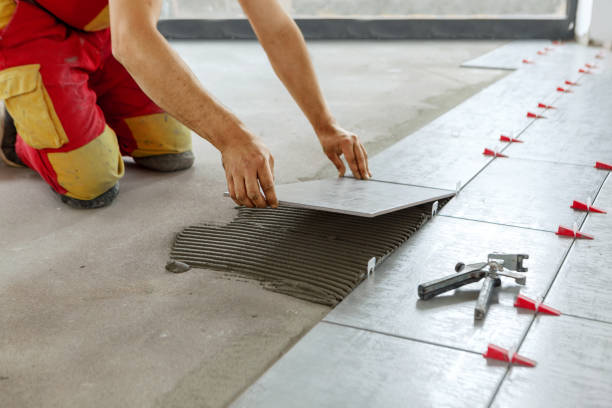
There are many flooring options out there and choosing the best one for you can be confusing. But don’t worry, we are here to help you make the decision. In this article, we will discuss some of the most common options and check their benefits and disadvantages. You will also get to know about the warranties that come with floorings and some tips on DIY installations. So, let’s start by comparing types of flooring materials pros and cons.
Many people confuse vinyl floors with laminate floors. Vinyl floors are thin sheets of flooring that are made of synthetic materials. Different raisins, polymers, and stabilizers are used in their manufacturing. These are very flexible and lightweight and can resist water easily. These are installed on the floor using strong adhesives.
You get tons of options in design and budget. You can get normal-looking cheap flooring and also get luxurious flooring at economical prices.
Their lifespan is less when compared to other flooring options like wood and tiles. That is obvious because of their thin structure. However, if taken care of these can last up to 10 years.
Laminate floors are synthetic floors designed to provide the looks of traditional wooden floors. The planks are made up of layers. The core is made up of resin or other strong synthetic material. It is covered by a layer that has a wooden design on it. The final layer is a protective transparent layer to protect the design layer.
Can be installed on other floorings. It is also relatively cheaper. It’s a great way to get the natural wooden looks while staying in budget
The core is prone to water damage. If a plan is exposed to water, it has to be entirely replaced.
Nothing beats the classic and luxurious looks of Harwood. These are real wooden planks manufactured from high-quality wood. These are some of the most reliable and long-lasting flooring options.

Harwood floors
Enhance the aesthetics of your place like no other. Can be refinished almost unlimited times. These floors can last for 30-40 years or more. Some good quality floors come with lifetime warranties.
It’s wood, which means it’s prone to water damage. You will have to take great care of these floors. Also, these are very expensive. The better the wood quality, the more the price.
This flooring is made up of real wood and synthetic material. The base of these planks is made of synthetic and durable materials. The uppermost layer is a thin layer of real wood. It provides the exact looks of hardwood while bringing more water-resistant qualities.
Provides the traditional wooden looks with less price. It has much more water-resistant qualities than a pure hardwood floor.
It is not invincible and can get damaged by water over time. It can only be refinished a number of times because the real wooden layer is very thin. Once the upper wood layer is gone, you will have to get new flooring.
Tiles are mainly made up of ceramic. These are ideal for humid and moist environments like bathrooms and kitchens. They are available in almost every color and texture.

Tiles
Tiles are water-resistant and can last for years in moist places. They are also cost-effective. These are also very easy to clean. Regular moping with water or cleaning solutions will keep them looking new.
These can get extremely slippery. Also, you cannot use them where there is heavy traffic. Tiles can also break and crack with impact by falling objects.
Carpets are made of synthetic fibers. There are some carpets made up of natural fibers but they are extremely expensive and fall in the luxury category. You can choose from thousands of design patterns and colors to fit the exact theme of your home. They are easy to install and can be dried if exposed to water.
Provides warm and comfortable padding to walk on. They uplift the overall aesthetics of your home.
Carpets are dirt magnets. Small fibers collect dirt from the air and the particles get stuck in them. You will often have to clean them with a vacuum to keep them clean.
Now we have covered the pros and cons of each flooring, we would like to talk about the warranties that come with it. Salesmen will try to impress you with their wording. Read along to learn about each warranty.
Many companies boast about their waterproof products and provide extensive warranties. But the majority of them use clever wording. The actual warranty covers any damage done if water falls on the surface of the flooring. However, if the water seeps through or falls over the edges, it nullifies the warranty. Yes, these flooring are good at resisting water on the surface but will get damaged if water gets thorough.
Scratch-free claims mostly cover the scratch-free surface that comes right out of the factory. It’s more of a guarantee from the company. They claim that their product is scratch-free when it comes directly out of the company. It does not cover any scratches caused by falling objects, pets, furniture, or any other sharp object.
How long do these warranties last? you might ask. Well, it varies from flooring to flooring and the manufacturer. Carpets can have a warranty of no longer than a year or two. On the other hand, some quality hardwood floors can have 20 to 30 years of warranties.
The part that you have been waiting for, DIY! It’s fun, you learn new things, and most importantly it saves you money. But it can also cost you a lot if done incorrectly. Wrong installations can nullify the warranties and even waste your whole investment. These are some general tips and things to avoid in your DIY installation.

flooring installation
Make sure that you do the measurement accurately. This will save you from overspending on the material. Wrong measurements can also cause loose fittings. Loosely fitted floorings are more prone to water damage and can also cause physical harm to your pets.
The subfloor is the floor on which you are going to install your new flooring. It could be your concrete slab or it could be an already installed flooring. Make sure that your floor is clean without any dirt and dust particles. It will result in an easy installation process and will also increase the reliability.
Make sure the floor is dry. A wet or moist subfloor will damage the flooring and it will also nullify the warranties.
Make sure you have the right tools. You don’t need to get high-tech tools but access to a standard tool kit is highly recommended. It will ease your task and will save you a lot of time.
Make sure that you read the manual carefully. Good manufacturers mention precautionary measures and the best ways to install their flooring
The most common mistake people make is improper placement of the flooring. Make sure there are no gaps in between. You can avoid it by doing accurate measurements.
You can’t just install any flooring on any type of subfloor. For example, hardwood floors are not meant to be installed directly on your concrete slab.
Another example is that a laminate floor can be installed on an existing wooden floor. However, a carpet will always slip when installed on the same wooden floor.
To sum up, the type of flooring you should get does not only depend on what you like. You have to factor in your budget, subfloor, area, requirements, and much more. Also, it’s not necessary that the most expensive option is best in every scenario. If you are confused about what flooring to select, you can always contact our professionals for advice. Professionals from Flooring Pro will help you select the best flooring that fits well and fulfills all your requirements.



Feel free to visit our flooring store at any time or call with any questions you may have. For quality affordable flooring Augusta GA, choose us!